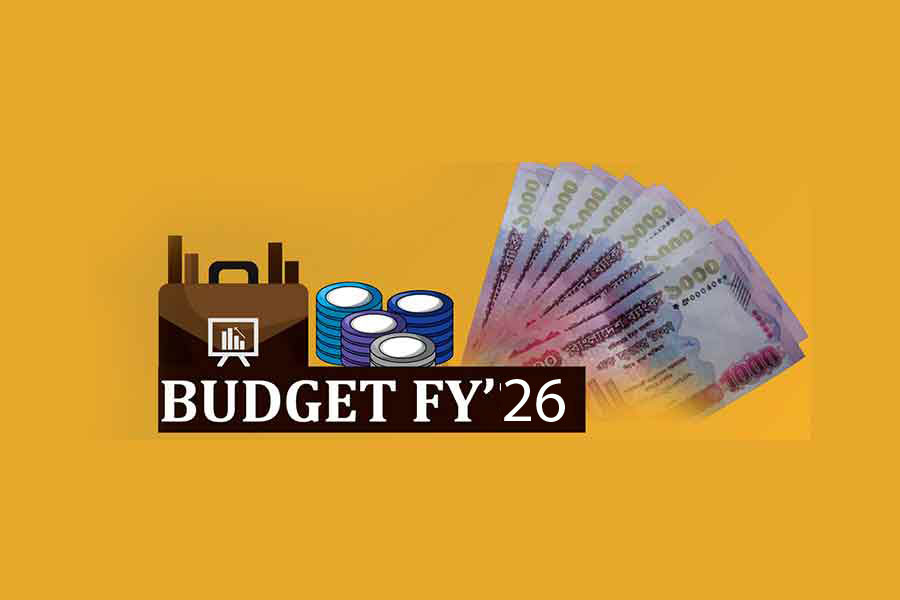
Published :
Updated :

Finance Adviser Dr. Salehuddin Ahmed is set to unveil the first budget of the interim government tomorrow (Monday), at a time when the country's economy is grappling with multiple challenges, including persistently high inflation and a slump in private investment.
Dr. Ahmed will present the national budget for the fiscal year 2025-26 at 4:00 pm through a pre-recorded speech to be broadcast on BTV and Bangladesh Betar. Private television channels will relay the speech via BTV feed. This time, the budget speech is expected to be shorter and more focused.
The finance adviser is likely to propose the budget with a total outlay of Tk 7.9 trillion, featuring a deficit exceeding Tk 2.2 trillion, according to officials familiar with the matter.
The gross domestic product or GDP is projected at 5.5 per cent.
Economists believe the upcoming budget will have to navigate a difficult path amid overlapping macroeconomic pressures.
These include elevated inflation, weak revenue mobilisation, sluggish investment, higher interest rate, rising unemployment, and an unstable capital market.
"Reducing inflation and boosting investment are the biggest challenges in the upcoming budget," said Dr. Zahid Hussain, former lead economist of the World Bank's Dhaka office.
"People, especially the limited-income bracket of the people, are struggling to afford essentials. High inflation has persisted for more than two years, eroding the real income of ordinary citizens." Headline inflation remained above 10 per cent in the first half of the current fiscal year (July-December) and hovered around 9.0 per cent through April.
Dr. Hussain attributed the fall in investment largely to high inflation and rising interest rates in the banking system.
He however urged the government to adopt a more pragmatic and realistic budget.
"Past budgets have often been overambitious," he said adding: "Budget should keep "limited ambitions".
Commenting on the fiscal deficit, he said: "The proposed deficit of over Tk 2.2 trillion isn't unmanageable. But the challenge lies in meeting the revenue target."
He flagged concerns over revenue mobilisation, especially after the government's move to split the National Board of Revenue (NBR) into separate policy and implementation wings-an attempt to reduce conflicts of interest.
The revenue target for the next fiscal is likely to be Tk 5.18 trillion although the IMF, one of the Bretton Wood institutions recommended to strengthen the revenue mobilisation at Tk 5.8 trillion for the next fiscal year.
He cited a recent interview with Dr. Salehuddin Ahmed, where it was revealed that for a case of Tk 1000 million in tax, the government received only Tk 100 million-just one-tenth lower of the due amount.
Of the rest, Tk 600 million went to corrupt tax officials, and Tk 300 million was retained by the taxpayer through collusion with the tax officials.
"This situation demands urgent and meaningful reforms in the revenue collection system. Without them, the tax authority cannot collect what it is owed," he went on.
He emphasised the need for political and social stability.
"Without peace on the roads, budget implementation will falter, and the economy will face renewed uncertainty," he added. Dr. A.K. Enamul Haque, director general of the state-run Bangladesh Institute of Development Studies (BIDS), stressed that the budget must also prioritise improving service delivery. "For too long, our public investments have focused on buildings, not services," he said.
"This time, we need to invest in people-doctors, teachers, nurses-so that service quality improves."
jasimharoon@yahoo.com


 For all latest news, follow The Financial Express Google News channel.
For all latest news, follow The Financial Express Google News channel.